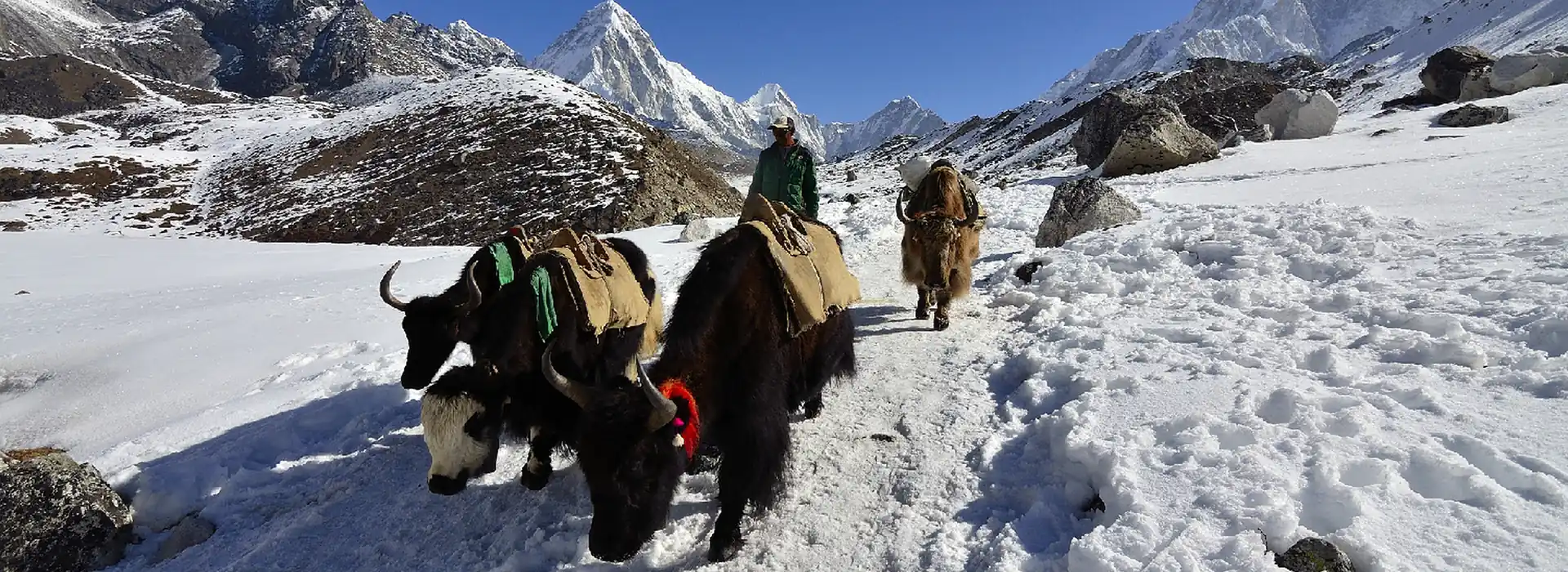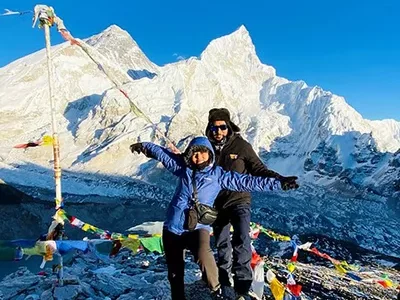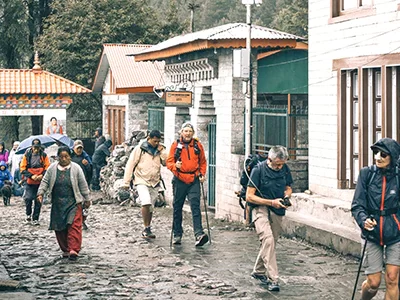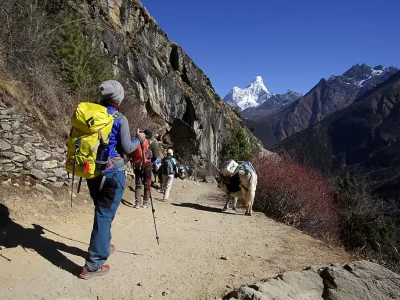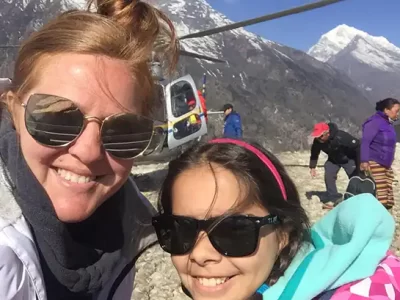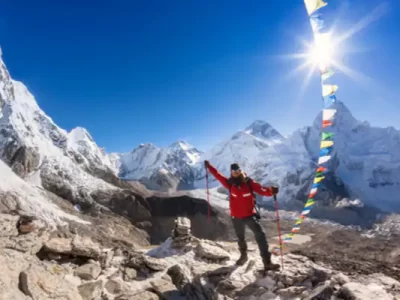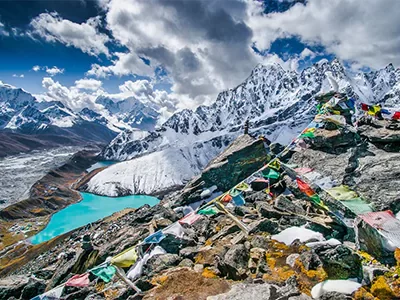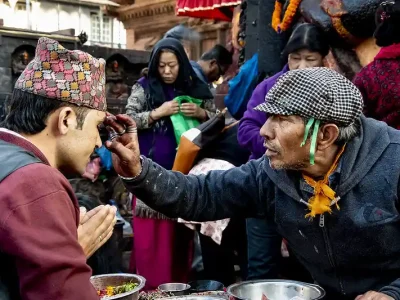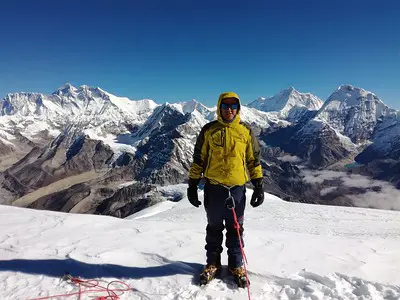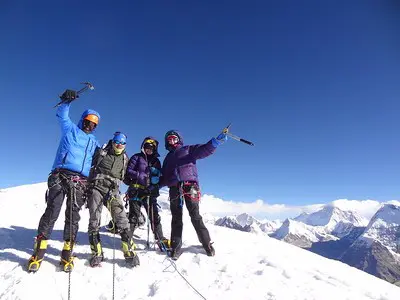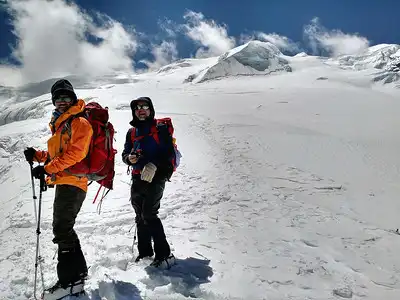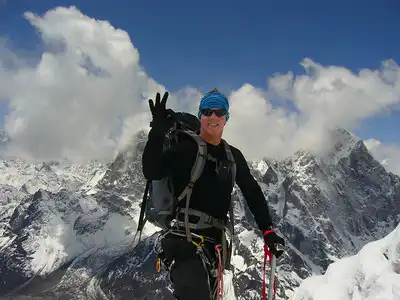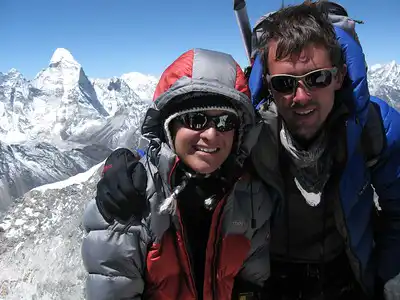Not here to calm your anxieties about the Everest Base Camp trek in February? You probably are.
You’re in the perfect place to get answers. By the conclusion of this blog, you’ll be ready for the Everest Base Camp Trek in February. Decide if you want to trek in February.
As you might expect, February is a quiet time to hike in Nepal. Why is that? In Nepal, this month ends winter. People think it’s still dangerously cold in the highlands. They plan to avoid Everest Base Camp in February.
The monthly situation changes. The Everest region’s upper areas and mountains remain snow-covered. Also, the bright skies last longer than usual, providing mountain views all day.
People say February is cold and dangerous, so don’t go.
Remember that it’s mainly compared to Autumn and Spring, the two busiest months in Nepal. Since February is the hottest month, you should have no trouble completing the Everest Base Camp Trek.
You may need more guidance. Simply reading the article will reveal the answer.
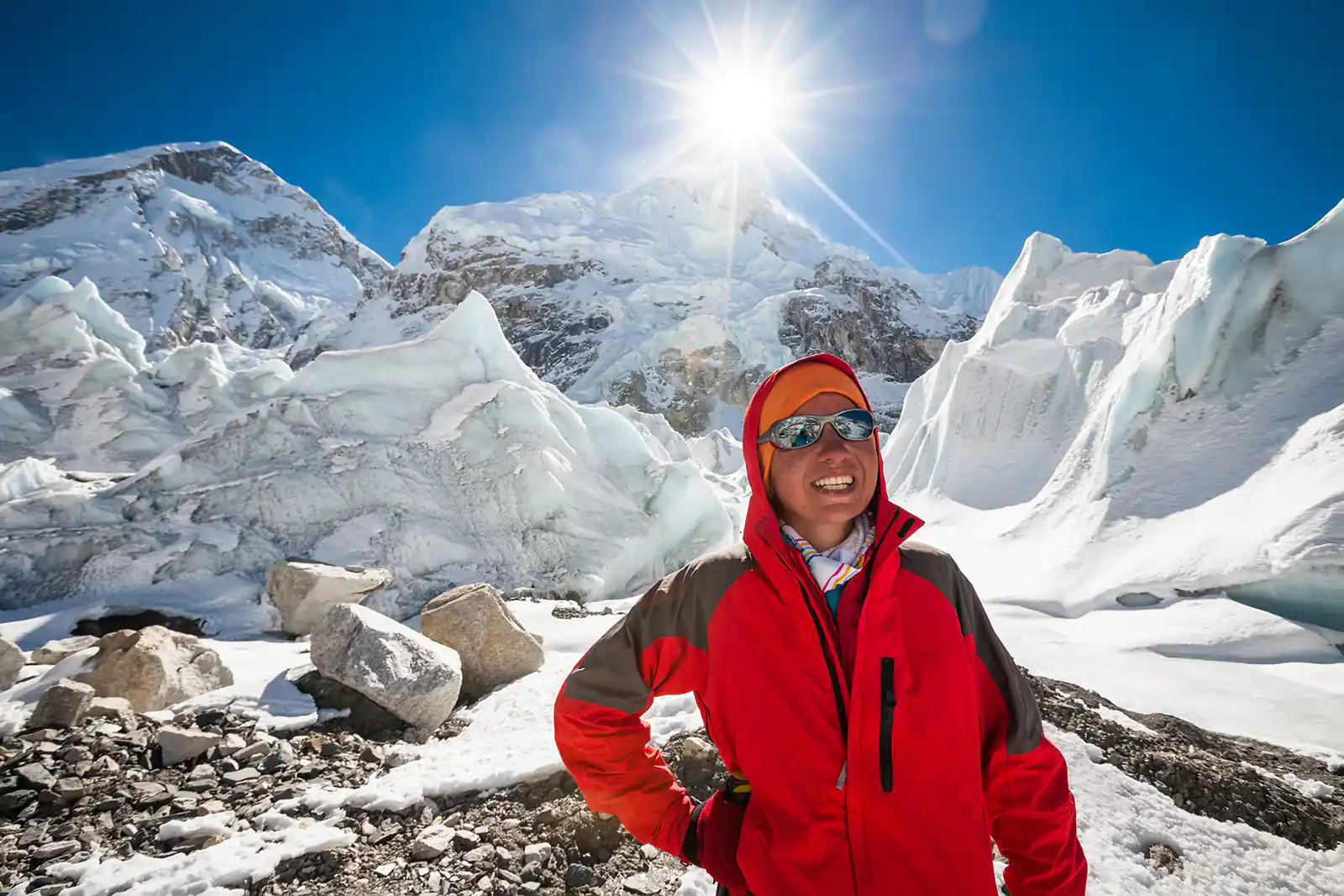
Everest Base Camp Trek in February highlights
Lukla flight electrifies
The Lukla flight is an epic adventure. Lukla is where your trek to Everest Base Camp begins. Seeing the snowy landscape from the Lukla aircraft is thrilling.
Namche’s main entrance
Namche Bazaar is the gateway to Mount Everest, 3,440 meters above sea level. You can recognize this market as a typical Khumbu commercial center. Town lights against a snowy backdrop are breathtaking.
Tranquility of Tengboche
It’s a popular destination because Tengboche Monastery is 3,867 meters high. One of the most important monasteries in Khumbu. Rimpoche can grant magic to Trekkers. In February, fewer people visit, so it’s quiet. So you can stay as long as you want.
View from Kala Patthar
The Kala Patthar is a historic site at Mt. Pumori. This is the best place to see Mt. Everest, Mt. Lhotse, Mt. Ama Dablam, and Mt. Nuptse, among others. And in February, the location is a cherry on top for incredible views.
Contact us if you want to hike to Everest Base Camp in February. We can make your trip memorable.
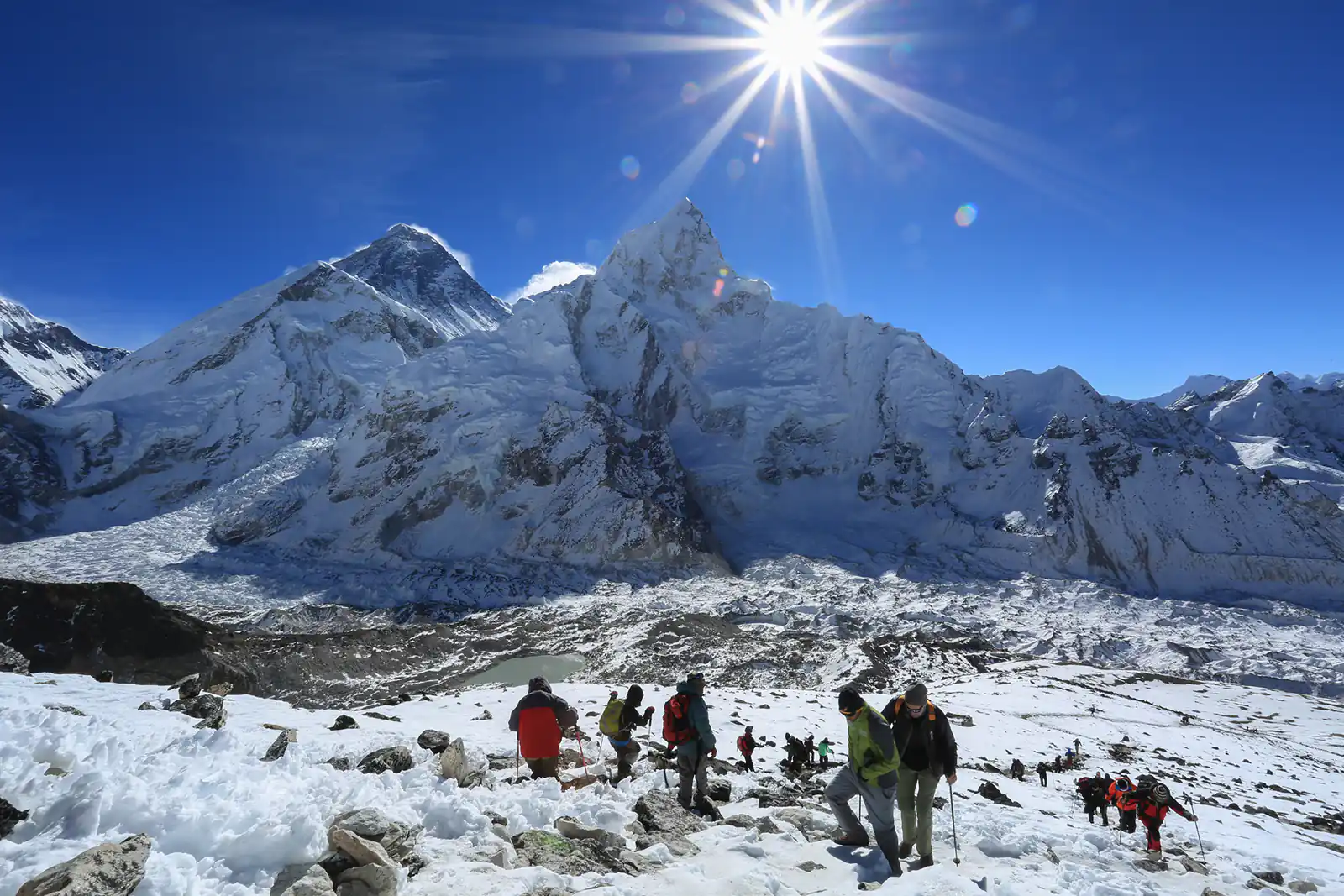
Everest Base Camp Trek
Luxury Everest Base Camp Trek
Everest Base Camp Short Trek
Everest Base Camp Trek in February
In February, Everest hiking is off-season. Due to snow, cold, and the likelihood of snowstorms and blizzards at high elevations, many trekkers, avoid this route.
Paths may be slick from snow. In this season, the weather can change often. Extreme humidity can blur vision.
You may need help choosing accommodations because lousy weather may close many tea shops. Therefore, it’s best to book both lodging and meals in advance. Due to fewer hikers, you may also get more blankets at night.
This high-altitude hike is exciting in the winter. Seasonal hiking will give you lifelong memories.
You must be mentally and physically ready. Pack carefully for the trip. And it helps to be patient enough to overcome obstacles.
With enough physical and mental preparation and appropriate gear, neither the cold nor the snow on the path will deter you from making this journey.
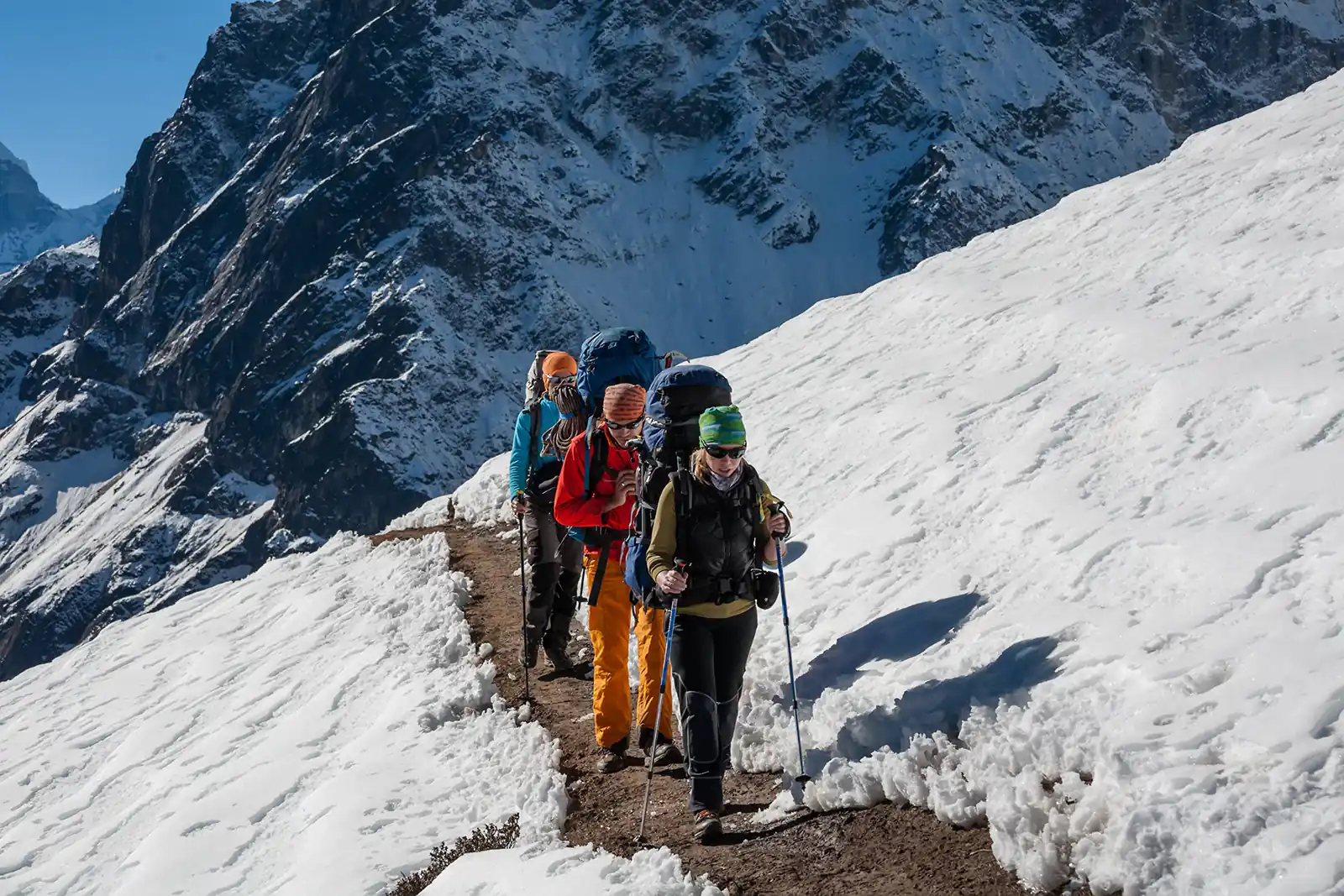
Feb. at Everest Base Camp
In February, Nepal’s winter is winding down. The cold and snowy winter is over. High temperatures that have frozen the mountains for months start to thaw them this month.
As predicted, the average temperature around Everest ranges from 4.3°C to -15°C this month. The morning and evening are chilly and windy. The second half of the month is warmer.
Height affects weather, too. If you’re in the highlands, dress correctly. Upper climb stages, such as Kala Patthar, Everest Base Camp, and Gorakh Shep, are more relaxed.
You’ll have a great time this month. All month, the mountains are clear. Even so, February is known for its rare snowfall. If you listen to your guide, you’ll be fine. Everything will be fine.
It’s possible to trek to Everest Base Camp in February. With the right gear, you can see a side of Everest that few do. Since there won’t be as many people, you can relax.
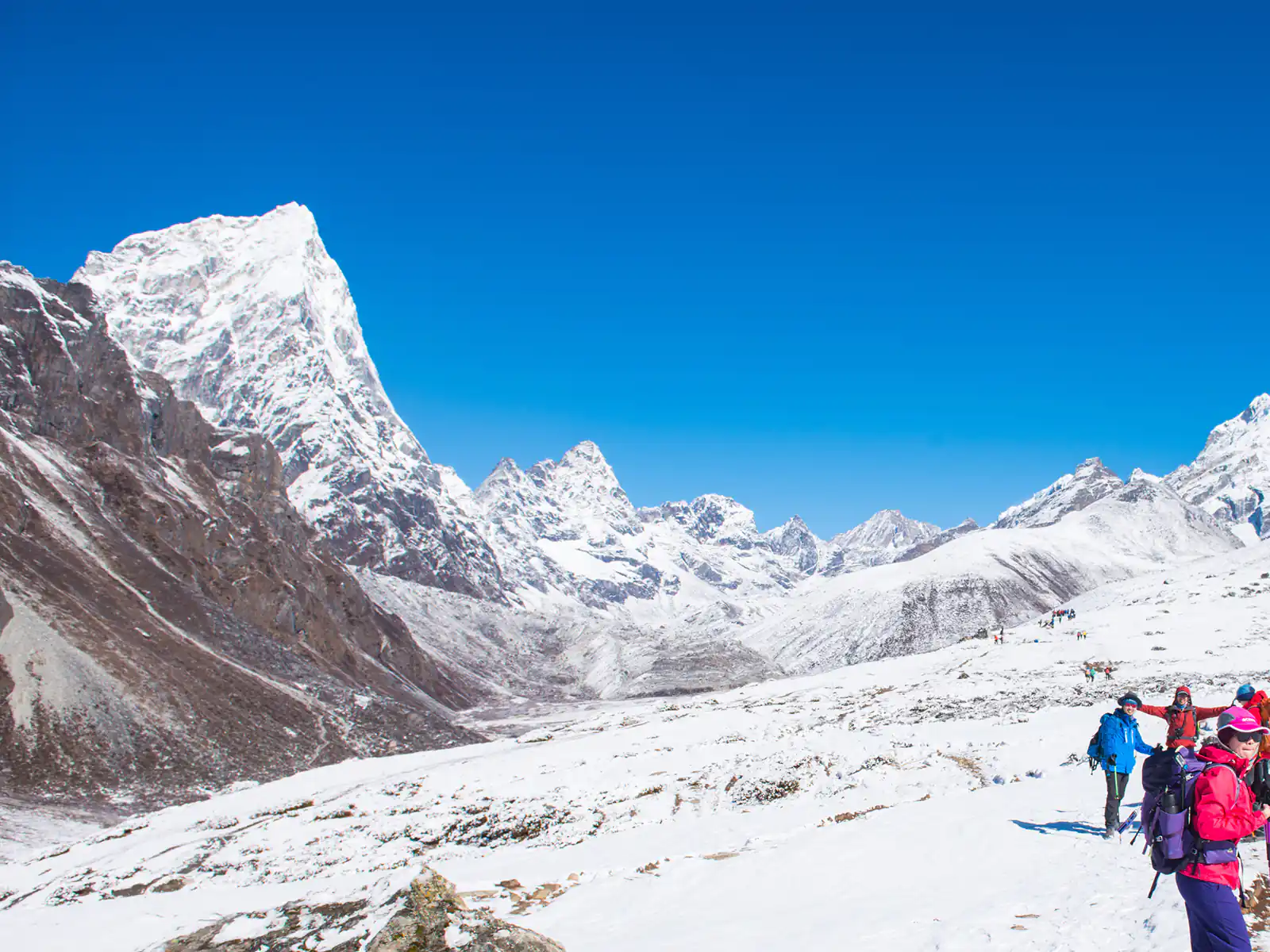
Why hike Everest Base Camp in February?
Nepal has some surprises for February tourists. It would help if you traveled to learn more. We will still show you what makes the Everest Base Camp Trek in February unique.
Small group
If you want to see more of Everest without crowds, go in February. In summer, fewer people hike than in fall and spring.
This is rare for Everest Base Camp, so expect fewer hikers during the month. The trail is peaceful, even at teahouses (lodges). Hikers who prefer quiet will love February.
Amazing Views
Nepal’s Himalayas are most stunning in winter. Snowfall is typical this time of year. The snowfall enhances a beautiful landscape.
If you want to see the Khumbu Region’s slopes and peaks covered in snow, go in February. This time of year, Mount Everest, has an otherworldly quality. That’s a show to see.
Price Drop
For frugal shoppers, February may work. Since February is less popular for hiking than April or October, tour operators offer steep discounts. Everest Base Camp Trek in February is cheaper than in October or March.
This month, flights, hotels, and food are cheaper. So this is the month to save money.
February Everest Base Camp advice
Heart and vascular system strengthening with cardio
The Everest Base Camp Trek requires good cardiac fitness. For less-experienced hikers, the trip will be longer and harder. If you’re one, training is critical. Get moving and raise your heart rate.
Activities include swimming, cycling, day hiking, and jogging. If you keep up the training, you should be fine in February. Fitness is vital for all Everest Base Camp Expeditions, not just February’s. After reading this blog, create a cardio workout schedule and get to work.
Good packing
More than good form is needed in February. You’ll need a warm, heavy coat for the hike. Snow gear like gaiters and crampons will be needed. If you don’t bring these, your February Everest Base Camp trip will be a disaster.
We have a blog post on what to pack for an Everest Base Camp trek. If it’s true, organize the pieces so everything is included.
A higher education
You fear the altitude. But! It’s obvious and affects every traveler. Who would choose Everest Base Camp Trek if afraid of heights? So stop fighting the truth and start preparing.
Understanding altitude is the first step in dealing with heights on an expedition. It helps you learn about mountain sickness, which will help you understand the disease and its protocols. It’s easy to avoid along the way.
Google “altitude sickness” to learn more. Leave when the article is done.
Preparation
A trip to Everest Base Camp may seem daunting to first-timers. The distance and terrain make this a strenuous hike. But focusing on the tour’s challenges won’t help.
Instead, be prepared for whatever the Everest Base Camp Trek in February may bring. If you don’t think evil, mentally preparing for the journey will be easier. You’ll be surprised by how well you hike and thankful later.
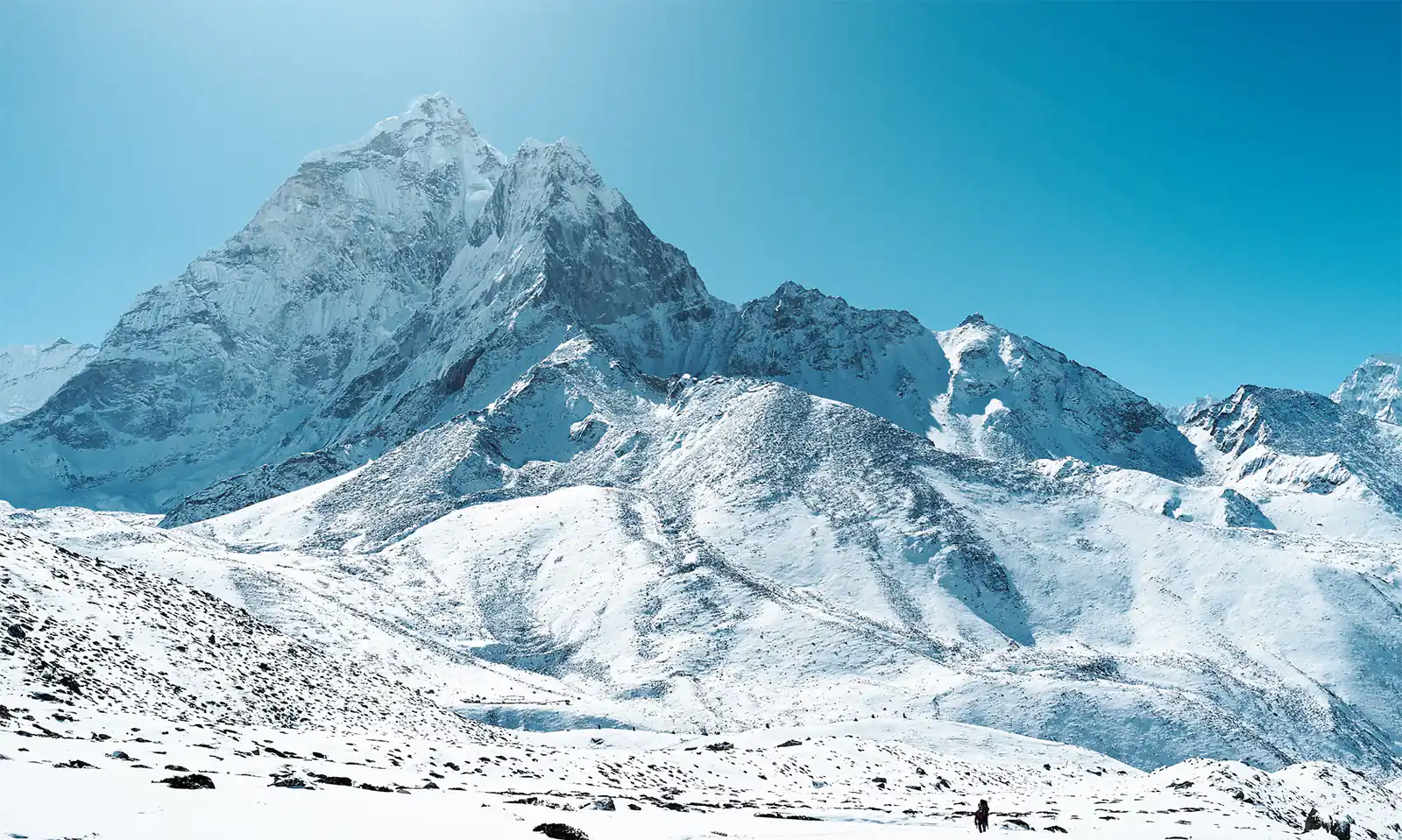
Everest Base Camp Information for February
Start Right
Early starts are best. February’s days were shorter than usual this year. This trip may be after dark. Start the day early to avoid this.
Bring winter gear.
Buy warm clothes and accessories for the winter. Check everything you need before leaving. You may need to bring clothing or equipment to your regular hangouts or home.
Please don’t carry your trekking gear.
Hiring a porter is a lifesaver if you have a heavy bag and other items. You won’t have to carry anything to admire the scenery.
Employ a Tour Guide
Winter solo treks in Nepal are risky. The risk remains in February. Therefore, hire a local guide for your group.
Allow the water to flow.
When mountaineering, water is a must. The altitude makes it easy to lose water, which can cause mountain sickness. Drink lots of water.
Never race in a hurry.
Trek slowly. Your risk of altitude sickness increases as you hike faster. The body needs time to adjust to high altitudes after fatigue. So, a leisurely pace helps. Keep moving at a snail’s pace, or you’ll stay caught up.
In the Everest Region, most people are Sherpa and Buddhist. In Kathmandu and the hills, they rarely celebrate Hindu festivals. Maha Shivaratri and Holi are held in late February, making February a great month for celebrations in Kathmandu and other parts of Nepal (and sometimes early March). Even though you won’t see these festivities in Everest, you may enjoy them in Kathmandu before or after your hike.
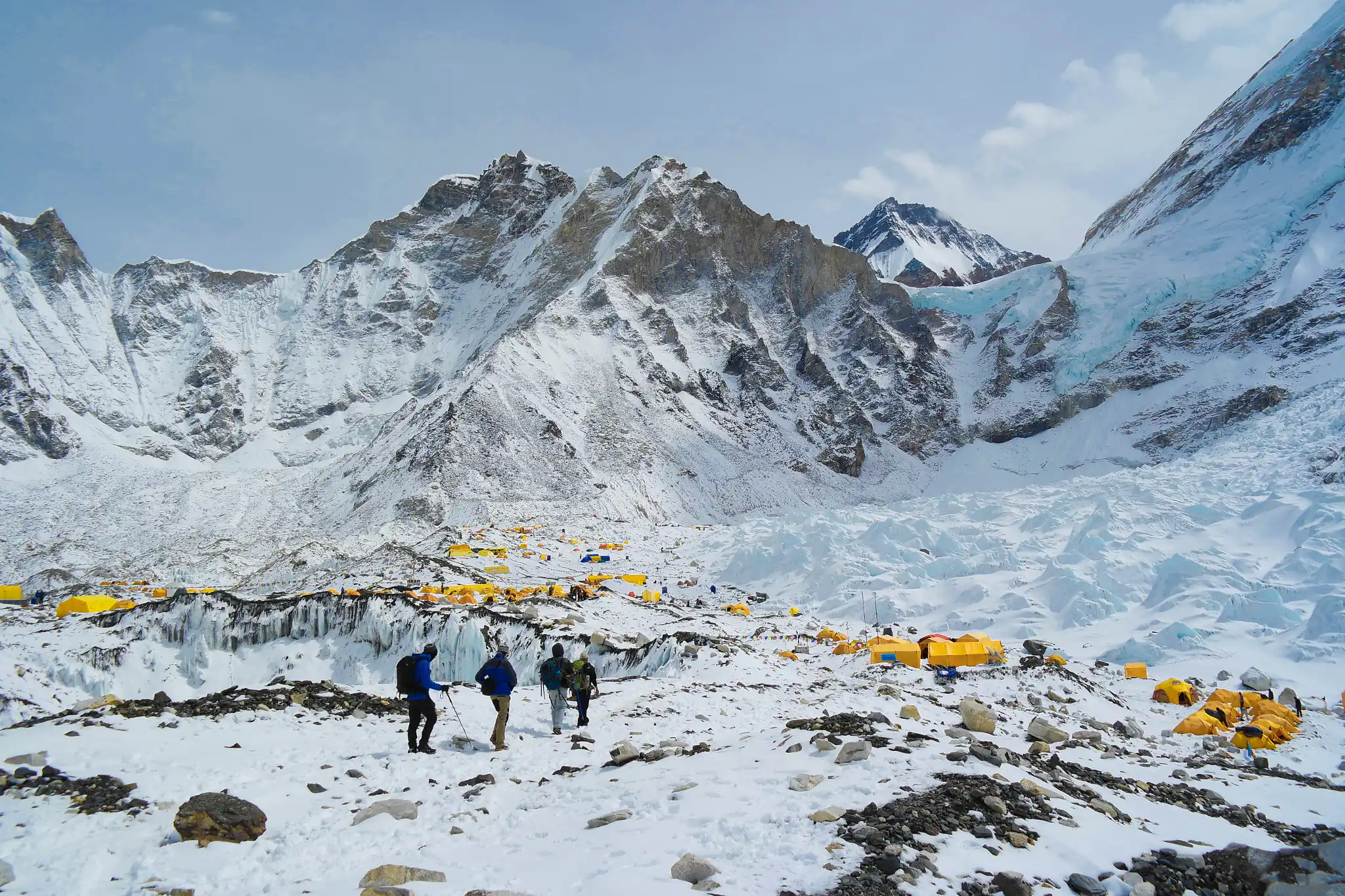
Everest Base Camp Trek with Helicopter Return
Jiri to Everest Base Camp Trek
Gokyo Cho La Pass Trek
Itinerary for Everest Base Camp Trek in February
Day 1: Kathmandu
When you land at Kathmandu’s Tribhuvan Airport, we’ll take over. You and your bags will be met at the terminal. Then, return to your hotel overnight.
The second day of the trip: 40-minute flight to Lukla (2,860m) and a 6-hour hike to Phakding (2,610m). Flight, 3- to 4-hour hike
Day 2: Fly 40 minutes from Kathmandu to Lukla.
You’ll start mapping Everest on that day. In Lukla, you’ll get a warm welcome. As you leave Lukla for Phakding, the weather should improve.
You’ll walk through villages, along the Dudh Koshi River, across suspension bridges, and through verdant forests. We look forward to a relaxing hike to Phakding. Overnight in Phakding.
Day 3: Phakding to Namche Bazaar (3450m) | 6-7 hours
You’ll wind your way from Phakding to Namche Bazaar, the Sherpas’ Himalayan capital. You can enter Sagarmatha National Park through Monjo with permission.
The white Dudh Koshi River, which you cross on suspension bridges, is another highlight. And you’ll reach Jorsalle before the long climb to Namche Bazaar. When you visit Namche Bazaar, you’ll understand its fame.
Day 4: Acclimate in Namche Bazaar.
Day 4 is spent in and around Namche Bazaar with no elevation gain. Your body will benefit from acclimation. On this day, you’ll acclimate to higher elevations. The day will be full of hiking around Namche Bazaar. Namche is your night’s stop.
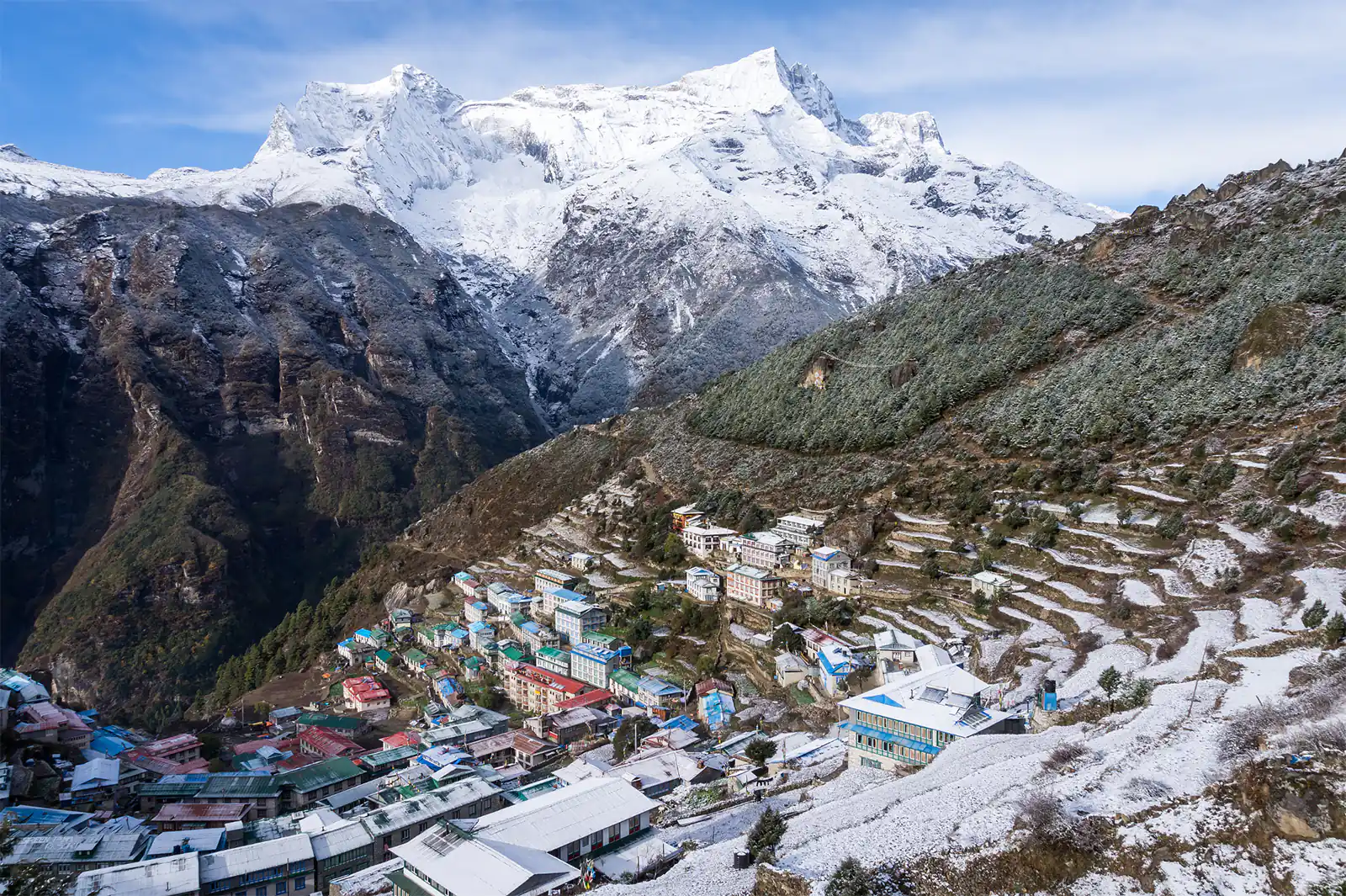
Day 5: Namche Bazaar to Tengboche (3,865m), 5-6 hours
After a day in Namche, head to Tengboche. You’ll get a clear view of the region’s peaks as the day progresses and have a full day of hiking ahead. After passing through several settlements and woods, you’ll reach Tengboche, home to the Tengboche Monastery and stunning mountain views.
Day 6: Tengboche to Dingboche (4,410m).
A new day of hiking means more mountain scenery. You’ll see Ama Dablam faster than the others. A route through pine forests leads to Dingboche. Spend the night at Dingboche, near Ama Dablam.
Day 7: Dingboche acclimatization
You can spend the day in Dingboche exploring the towns and stunning scenery. To help your body adjust to the altitude, spend a second night in Dingboche.
Day 8: hike from Dingboche to Lobuche (4,940m)
Today’s hike is to Lobuche. You’ll climb a winding path made from glacier moraine to start. You’ll also see a memorial of stones and chortens for mountain deaths. This way leads to Lobuche, a quaint settlement near the summit.
Day 9: Trek from Lobuche to Everest Base Camp via Gorak Shep (5,140m). This is a 7-8-hour trip.
Today you reach Everest Base Camp for the first time (5,364m). Gorak Shep is far from Lobuche’s base camp. From a renowned vantage point, you can see dozens of mountains, including Everest, if you can overcome the obstacles. You’ll head to Gorak Shep for the night when you’re done at base camp.
Day 10: Visit Kala Patthar (5,5545m) and return to Pheriche (4,243m), which takes six to seven hours.
After base camp, head to Kala Patthar, the best mountain-viewing spot in Everest. From Gorak Shep, the path climbs a final moraine. You can see what many consider the best mountain vista when you arrive. After that, you’ll stay in Pheriche at a teahouse.
Day 11: Trek down to Namche Bazaar (6-7 hours)
Since you’ve achieved your goal, you’re on the way back. You’ll return to Namche Bazaar via Tengboche and the same route you came up with. This hike is all downhill from here. Stay in Namche Bazaar.
Day 12: Namche to Lukla (6-8 hours).
From Namche, you’ll return to Lukla, ending your Everest Base Camp trek. Monjo, Phakding, and others are on the route. After reaching Lukla, you’ll sleep.
Day 13: Flight from Lukla to Kathmandu (40-Minute Trip)
Again, you’ll fly back to Kathmandu. You’ll see the same view from above for 40 minutes. After a smooth arrival in Kathmandu, you’ll rest and see the city’s highlights. In Kathmandu for the night.
Day 14: You leave Kathmandu
Today ends your Base Camp Adventure trip and Everest Base Camp Trek. The staff will take you to the airport from your hotel.
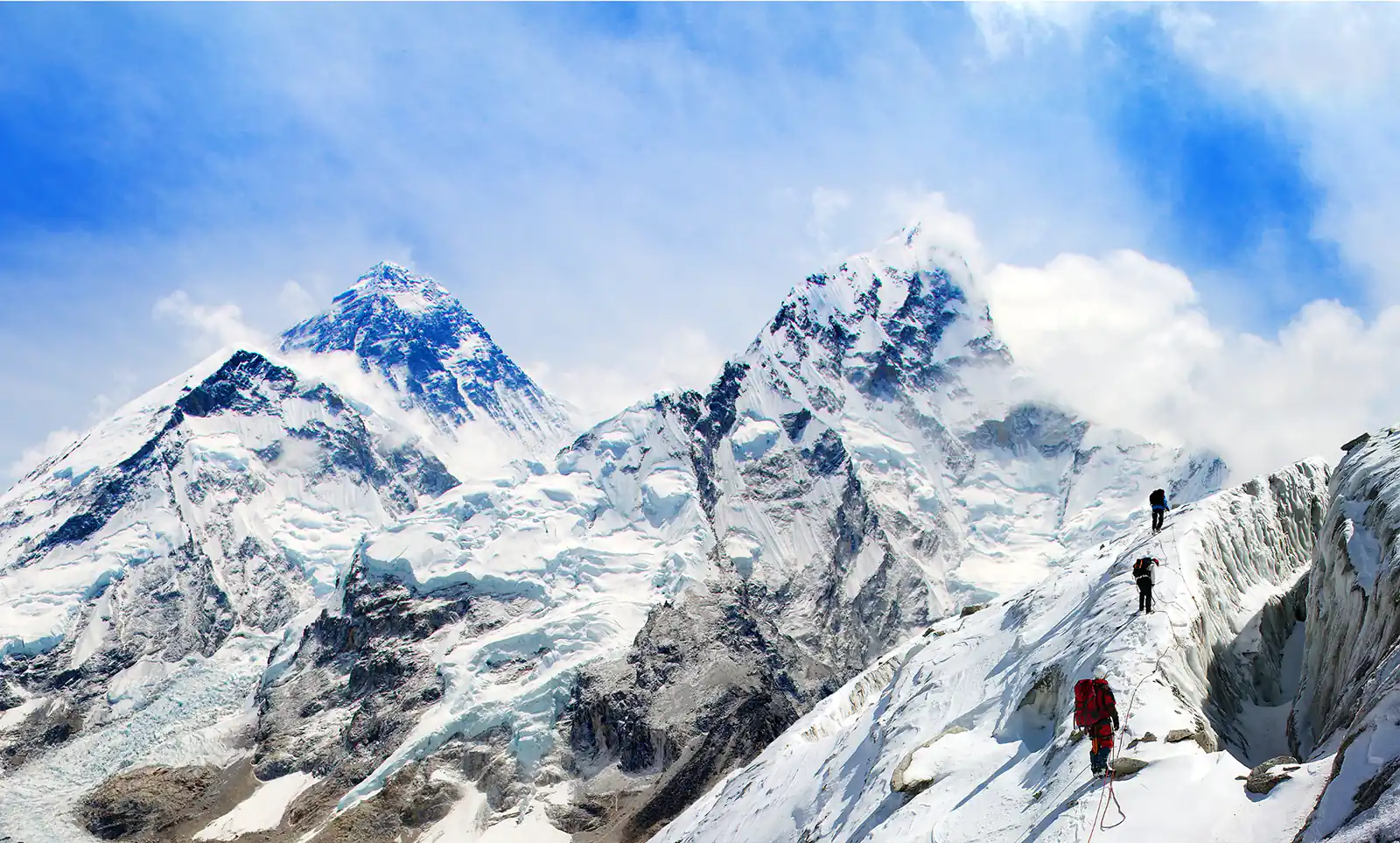
Conclusion
In February, Everest Base Camp is ideal for an adventure. This hike is remarkable due to the weather and surrounding mountains. Late February is an excellent time to hike because it’s the end of winter and the start of spring.
It’s still possible to travel in early February. Even in February, it’s possible to trek to Everest Base Camp with the right gear and planning.
Offseason establishments will be nearly deserted, so you can get a discount. Everest Base Camp Trek in February is ideal for any serious trekker.
